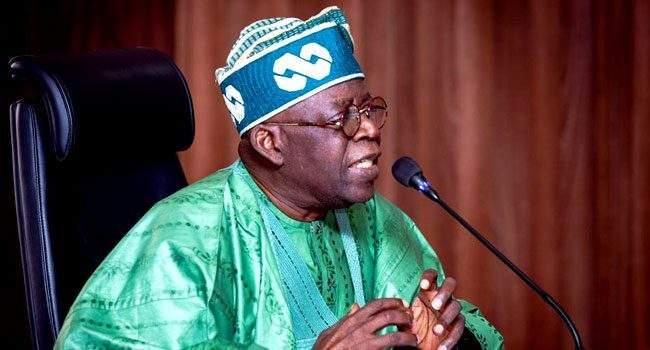March 22, 2024

The Coordinating Minister of Health and Social Welfare, Prof Ali Pate, has said that President Bola Tinubu has approved the involvement of the National Sovereign Investment Authority’s (NSIA) upgrade of six Oncology centres for the treatment of cancer in six Federal University Teaching Hospitals across the geo-political zones.
He emphasized that NSIA’s involvement in the Oncology initiative was imperative due to the project’s stagnation four years ago, which could no longer be tolerated given the current volatile local and global inflationary trends.
The project will recommence utilizing the remaining N17.9b from the initial appropriation, along with the N30b allocated for it in the 2024 budget for the six centres, totalling N37.9b.
In addition to bridging the funding gap, the NSIA collaboration would also ensure the provision of infrastructure and training of personnel, among other variables to the project.
Pate spoke on Friday, March 22, in Abuja during the signing of the Memoranda of Understanding (MoU) between the Ministry, the NSIA and the six Federal University Teaching Hospitals, where he also confirmed the NSIA Board’s approval of the project.
Present at the event was the Ministry’s Permanent Secretary Daju Kachlllom; NSIA Managing Director, Aminu Sadiq; the Chief Medical Directors (CMDs) of Federal Teaching Hospital, Katsina, Suleiman Mohammed; Ahmadu Bello University Teaching Hospital, Zaria, Prof. Hamidu Umdagas; Jos University Teaching Hospital, Pokop Bupwatda; the University of Nigeria Teaching Hospital, Enugu, Prof. Obinna Onodugo; University of Benin Teaching Hospital, Benin, Prof. Darlington Obaseki; and Lagos University Teaching Hospital, Lagos, Prof. Wasiu Adeyemo as well as the representatives of the Economic and Financial Crimes Commission (EFCC) and Civil Society Organizations (CSOs).
Pate who noted that upon reviewing the project upon assuming office and considering the current economic realities, said the government had no choice but to eliminate all obstacles hindering the project, including ‘vested interests’.
According to him, having identified the activities of the middleman in the procurement of the equipment as one of the factors that have been inhibiting the implementation of the project, the involvement of NSIA has eliminated the middlemen.
As such, the country would be saving approximately N10b as NSIA’s direct involvement with equipment manufacturers would guarantee the country a 30% discount on procured equipment, he added.
He said: “This is a milestone that brings to the end of a tragic story for thousands of Nigerians who have all kinds of diseases who struggled to get care every day, especially for those who had cancers, from when they are diagnosed, it’s a tragedy by itself.
“And for us, for, to see in three, four years where the money would be appropriated for cancer equipment but for one reason or the other we have not been able to move forward, that is another tragedy.
“But that tragedy is being brought to an end now and President Bola Tinubu must be commended for changing the narrative by approving the implementation of the project’s 2024 appropriation funding gap in collaboration with NSIA, for six newly upgraded cancer infrastructure equipment.
“I understand that the delays this project encountered in the last three to four years are largely attributable to vested interests but for us, it is Nigeria and people’s interest first, particularly when it comes to cancer.”
He acknowledged that some individuals might be displeased because the resources would no longer flow into the pockets of those hindering Nigeria’s progress.
The minister underscored the project’s seriousness, stating that the Nigerian Nuclear Regulatory Authority, the Economic and Financial Crimes Commission (EFCC), and Civil Society Organizations (CSOs) would be actively involved in monitoring and evaluating it.
This proactive approach, according to him reflects the government’s commitment to preventing vested interests from derailing the project.
While emphasizing that the project implementation would prioritize transparency, the Minister stressed that mere announcements of significant fund allocations to projects are insufficient; thus, he urged the EFCC, CSOs, and everyone to vigilantly monitor fund allocation and project progress.
“Please, keep an eye, make sure you track this. We are very focused, and we are ready to do what is right”, Pate emphasized.
Earlier, the NSIA DG highlighted the organization’s experience and achievements with LUTH, illustrating the transformative potential of world-class equipment in Nigerian health facilities.
He, however, noted that the success story would be the commissioning of the six centres in 18 or 20 months with the right infrastructure and trained personnel while emphasizing that the onus is on all the parties to ensure that the project is actualized.
All the CMDs commended the political will of the government to get the project back on course considering the difficulties they faced to see its actualization and the plight of cancer patients in their facilities.
The Chief Medical Officer (CMD) of the Lagos University Teaching Hospital (LUTH), Prof. Wasiu Adeyemo, one of the beneficiary Teaching Hospitals, said it was a new dawn for Nigeria and the beginning of the end of medical tourism abroad.
He said though LUTH pioneered the project, it would, with the new project benefit from more advanced cancer treatment monitoring equipment from the project.
Maintaining that with LUTH’s experience since the inauguration of its own centre where it now records 150 cancer patients daily, the CMD believed that going abroad for cancer diagnosis and treatment would soon be a thing of the past while saving the country’s capital flight due to medical tourism.
He said: “When LUTH has what the others are trying to get to know, state-of-the-art cancer equipment, why are we getting involved, that has always been the question, but the answer is what about the monitoring of treatment and making diagnosis?
“When you have this kind of centre like ours (LUTH), you need Positron emission tomography (PET) scan, Single-photon emission computed tomography (SPECT) scan, cyclotron radiopharmacy.
“What this translates to in practical terms is that let’s say the nearest country to Nigeria, Ghana, when you go for such treatment, an average of $ 10,000 is spent excluding accommodation and flight cost, but with what LUTH will get from this project, Nigerians won’t spend more than $3,000. That’s huge for Nigeria’s huge foreign exchange.
“I will say this is unprecedented in cancer care and the equipment we have in LUTH and which others will acquire too are modern and comparable to any other in the world.”
– agency news
